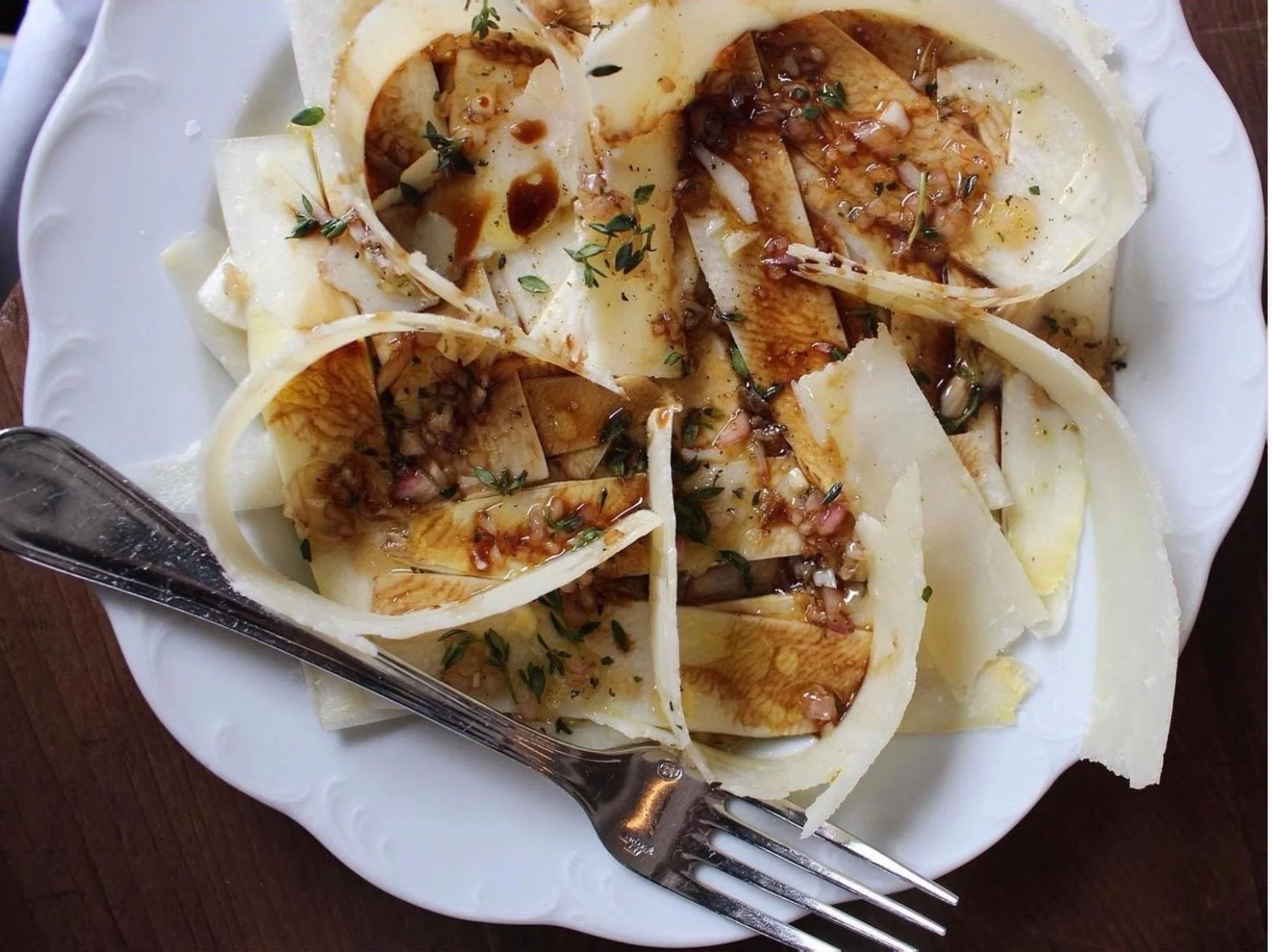FOOD TERMS
AL DENTE — al dente describes pasta or rice that is cooked to be firm to the bite. The etymology is Italian "to the tooth".
AL FORNO — in the oven
ALLA CENERE — literally “in ash”, a method of charring
ALLA GRIGLIA — literally “at the grill”, or grilled
BRASATO — braised; a cooking method that begins with browning meat or vegetables and then cooking (in the oven or on the stove) with a moderate amount of liquid under a cover
CONFIT — when food is cooked in its own fat, oil or sugar water, at a low temperature, slowly over a long period of time
MACERATED — In food preparation, maceration is softening or breaking into pieces using a liquid. Raw, dried or preserved fruit or vegetables are soaked in a liquid to soften the food, or absorb the flavor of the liquid into the food.
ODORI — a fragrant mixture of vegetables and herbs that forms the basis of many Italian dishes, often including onion, celery, carrot, and garlic
PASTA FRESCA — freshly made pasta
QUANTO BASTA — ‘as much as is enough’, as in, seasoning a dish to taste
SPUNTINI — small bites
FORMAGGI
BURRATA — a fresh cow’s milk (sometimes buffalo’s milk) cheese characterized by a solid outer layer of mozzarella and a creamy, spreadable interior
CAPRINO — a soft cheese traditionally made from goat’s milk. The name of the cheese derives from the Italian word for goat, capra.
GORGONZOLA — a blue cheese originating from the Lombardy and Piedmont regions, made from unskimmed cow's milk and characterized by blue-green veining
MASCARPONE — rich cream cheese made with cow’s milk
PARMIGIANO — a hard cow’s milk cheese with a granular texture and a salty, nutty flavor, aged at least 12 months
PECORINO — a hard or semi-hard cheese made from sheep's milk, derived from the word "pecora" meaning "sheep" in Italian.
ROBIOLINA — rich, very soft cheese made from full-fat cow’s milk
SCAMORZA — a semi-soft stretched-curd cheese made from cow’s milk
STRACCHINO — a fresh, soft, and creamy cheese made from whole cow’s milk
Nota Bene:
Please do not use the word “noodle” at Via Carota; instead be sure to say “pasta” or the specific type of pasta.
Please avoid listing butter as an ingredient unless specifically asked by the guest.
When describing the tortelli or ravioli, please do not use the word “stuffed”; instead describe them as filled pastas.
Please refrain from saying “sauce” or “dressing”. Instead list the ingredients in the dish. For example, if a guest asks about the sauce with the tortelli, simply say it is parmigiano.
Lastly, be sure to study the pronunciation guide here to learn correct Italian pronunciation for our dishes.


